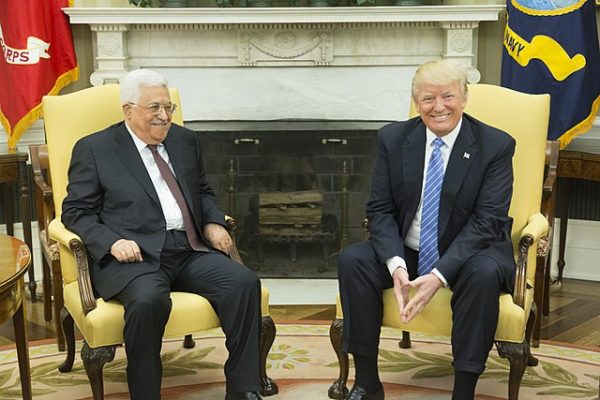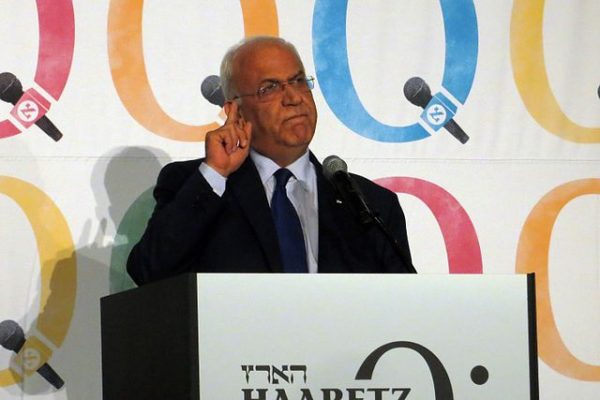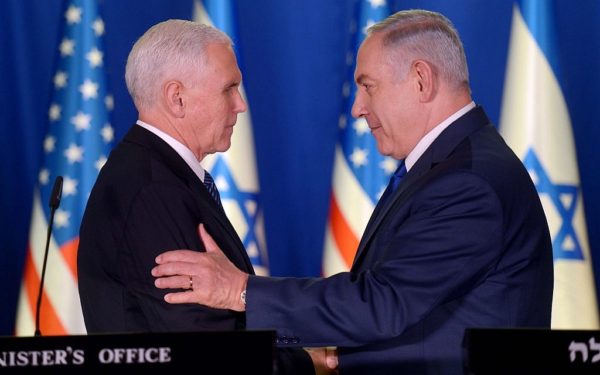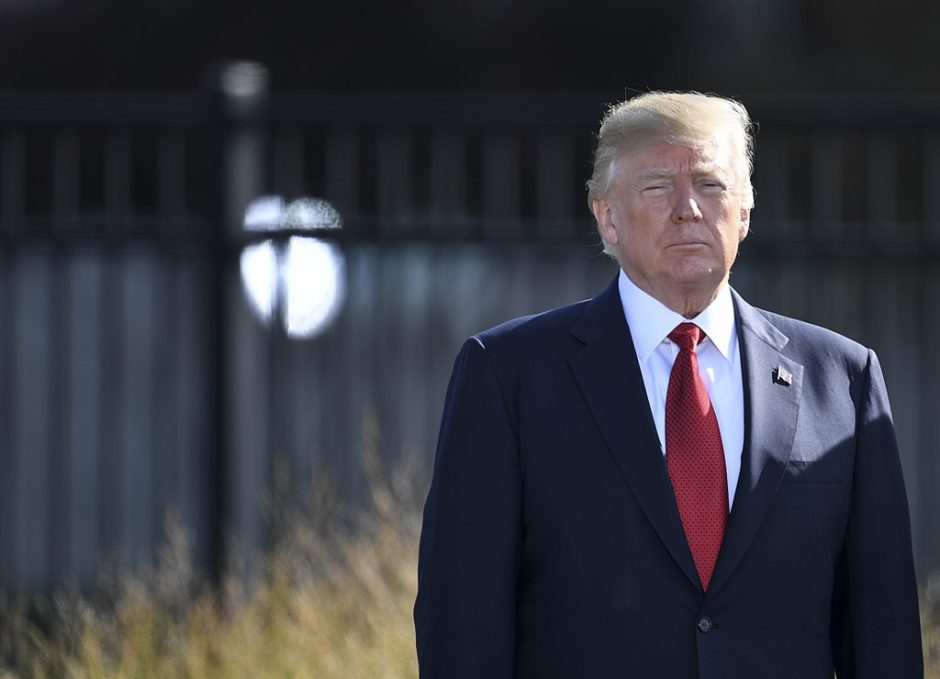Last May, following talks with Palestine Authority President Mahmoud Abbas at the White House, U.S. President Donald Trump pledged to resurrect peace negotiations between Israel and the Palestinians to achieve what he boldly described as the “ultimate deal.”

In a sweeping observation, Trump boasted, “It’s something, frankly, maybe not as difficult as people have thought over the years.” And then, in a burst of hubris, he added that his administration had a “very, very good chance” of reaching that elusive objective.
Famous last words.
Eight months on, Trump’s team of peacemakers — led by Jason Greenblatt, the president’s chief negotiator; Jared Kushner, his senior advisor and son-in-law, and David Friedman, the U.S,. ambassador to Israel — are still working on a plan to present to Israel and the Palestinian Authority for consideration.

In all likelihood, they may be wasting their time, given Trump’s recognition of Jerusalem as Israel’s capital and the Palestinians’ subsequent decision to reject the United States as an honest broker. “We will not accept the U.S. as a mediator, because after what they have done to us, (we) shall not be stung twice in the same place,” Abbas said early in the new year.
Abbas reaffirmed his commitment to non-violence and rejection of terrorism, but charged that Trump’s position on Jerusalem, a sharp break with U.S. Mideast policy, had foreclosed the possibility of the United States playing a central role in restarting the moribund peace process, which collapsed almost four years ago in a welter of mutual acrimony.
Urging the United Nations to replace the United States as a neutral mediator, Abbas mocked Trump’s pretentions, asserting that his ambition of closing the “deal of the century” during his presidency was actually the “slap of the century.”

In a further comment reflecting outrage with the Trump administration’s strategy, the top Palestinian negotiator, Saeb Erekat, asserted that the Palestinians would boycott the U.S. negotiating team until such time as Trump rescinds his recognition of Jerusalem as the Israeli capital.
Responding to the Palestinians, Trump said he had “taken Jerusalem, the toughest part of the negotiation, off the table.” In a seemingly ominous aside, he suggested that Israel would have “to pay” for his recognition of Jerusalem through significant concessions to the Palestinians.

The growing rift between the United States and the Palestinians was exacerbated by several additional developments.
Abbas announced he would not meet U.S. Vice-President Mike Pence during his visit to the Middle East in mid-January. Abbas’s announcement was followed by a threat from the Trump administration that the United States might close the office of the Palestine Liberation Organization in Washington. In addition, the Trump administration said it would withhold $65 million from the United Nations Relief and Works Agency, which provides humanitarian assistance to Palestinian refugees in the West Bank, the Gaza Strip and an assortment of Arab countries.
Trump himself threatened to cut off all U.S. aid to the Palestinians unless they resume talks with Israel. “We pay the Palestinians hundreds of millions of dollars a year and get no appreciation or respect,” he thundered in a Twitter post. “With the Palestinians no longer willing to talk peace, why should we make any of these massive future payments to them?”
The feud between the United States and the Palestinian Authority worsened after the publication of a report in The New York Times on January 18 that the Trump administration would move the U.S. embassy to Jerusalem by 2019.
Israeli Prime Minister Benjamin Netanyahu had said this would happen “in the course of the year,” prompting Trump to counter, “We’re not really looking at that.”

But on January 22, in a speech to the Knesset, Pence confirmed the Times account, thereby rendering irrelevant a previous statement by U.S. Secretary of State Rex Tillerson that it would take no less than three years to transfer the American embassy from Tel Aviv to Jerusalem.
Like Trump, Pence did not specify whether the new embassy would be located in East or West Jerusalem, an extremely important point with far-reaching ramifications. Netanyahu’s right-wing government claims all of Jerusalem, while the Palestinian Authority hopes to establish its capital in East Jerusalem.
Last year, Russia officially recognized West Jerusalem as Israel’s capital. The United States has left that issue deliberately vague, even though the Trump administration has reportedly informed the Palestinians it plans to recognize the Jerusalem suburb of Abu Dis as their capital, an idea they previously rejected out of hand.

Netanyahu, who presides over the most hardline government in Israeli history, claims that Abbas’ rejection of a U.S. role in future peace talks means he is not interested in resolving the Arab-Israeli conflict.
Netanyahu’s analysis is facile and self-serving, to say the least.
While professing to support the creation of a demilitarized Palestinian state, he has done everything in his power to block the prospect of Palestinian statehood. As Barack Obama, Trump’s predecessor, put it the other day, “The pace of settlement has skyrocketed and accelerated. If you look at a map (of the West Bank), it starts becoming a Swiss cheese map, where it becomes almost impossible to create any kind of functioning Palestinian state.”
As Obama correctly indicated, Israel has expanded its network of settlements in the West Bank, shattering the possibility of a geographically contiguous Palestinian state.
Recently, the central committee of the Likud, Netanyahu’s political party, passed a non-binding but unanimous resolution endorsing the “application of Israeli law and sovereignty in all liberated areas of settlement” in the West Bank.
As well, the Knesset passed a bill that the handover of any part of Jerusalem to a foreign entity would require a majority of 80 out of 120 votes. Until then, the bar had been considerably lower, requiring a simple majority and a national referendum.
It’s clear that Trump’s pro-Israel policies have emboldened the current Israeli government, which will only consider signing a peace agreement with the Palestinians if it is in full conformity with its strategic conceptions. That’s another way of saying that Netanyahu will never accept a genuine two-state solution, which has been implicitly or explicitly at the heart of every serious peace proposal since the 1993 Oslo process.
Content with the status quo, and offering the Palestinians no more than autonomy in their ancestral lands, Israel is tightening its iron grip on the West Bank and thereby preventing the emergence of Palestinian statehood.
The Trump administration has been an accomplice in this process. So much for Trump’s “ultimate deal.”

